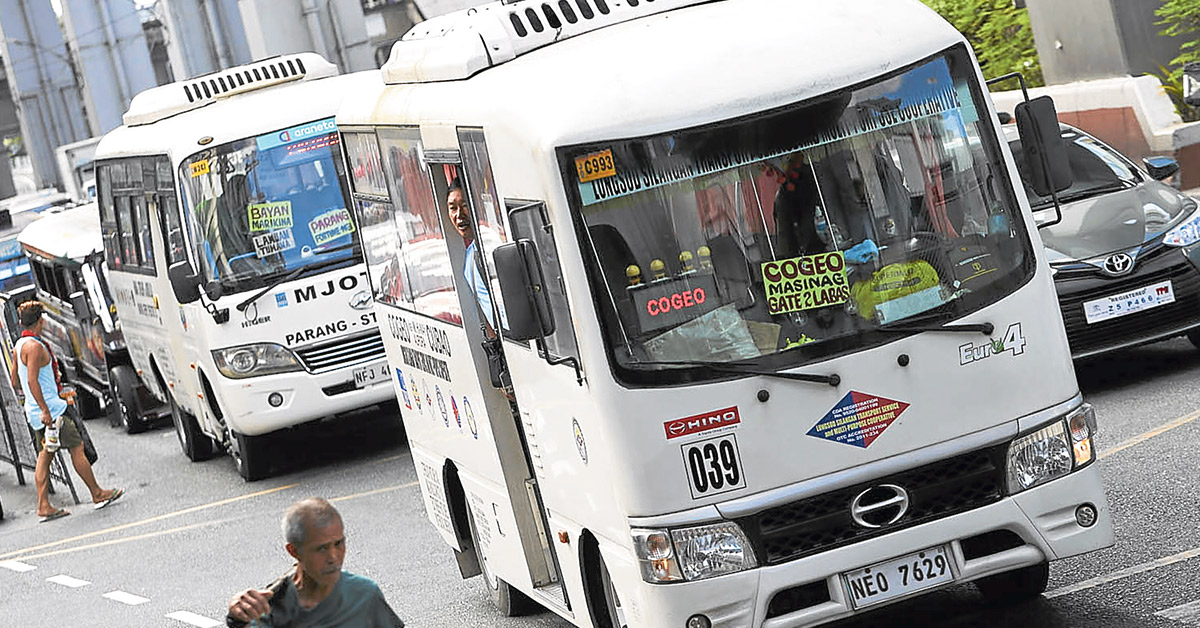
Niño Jesus Orbeta
MANILA, Philippines — President Ferdinand Marcos Jr. rejected on Wednesday the Senate’s proposal to suspend the implementation of the Public Utility Vehicle Modernization Program (PUVMP), as more than 80 percent of jeepney operators and drivers nationwide had joined transport cooperatives—the first requirement for their inclusion in the program.
“Well, I disagree with them (senators). They are saying that this was rushed. The [program] has been postponed seven times. Those who have been objecting and asking for [its] suspension are in the minority. Eighty percent have already consolidated,” Marcos said in an interview in Masantol, Pampanga.
READ: 22 senators want PUV modernization program put on hold
He added: “So how do we do this? The 20 percent will decide the lives of the 100 percent? We listened to the majority and the majority said we should continue this. So that’s what we will do.”
A Senate resolution approved by 22 out of 23 senators last week asked the government to suspend the program, citing the “valid and urgent concerns” raised by groups opposed to the PUVMP.
Escudero’s clarification
Senate President Francis Escudero, however, clarified that the suspension would apply only to those who have yet to comply with program requirements.
“What the Senate is asking for is simple, the government should first fix the program before they proceed with banning old transport models,” he said.
“They should slow down a bit and review the loopholes needed to be fixed before they fully implement it,” he added.
Data from the Department of Transportation (DOTr) showed that 83.38 percent of transport operators and drivers had already consolidated or joined cooperatives or corporations to help them acquire new, environmentally friendly jeepneys under rationalized routes.
A total of 1,781 cooperatives with 262,870 members have also been accredited by the DOTr’s Office of Transport Cooperatives.
The jeepney modernization program began in 2017 and seeks to replace traditional jeepneys that are no longer roadworthy with vehicles that have Euro 4-compliant engines to reduce air pollution. The cost of the vehicles, at least P2 million each, will only be partially subsidized by the government.
Reacting to the President’s statement of support, Land Transportation Franchising and Regulatory Board Chair Teofilo Guadiz III thanked him, saying his “steadfast commitment reinforces the importance of modernizing the country’s public transportation system for the safety, efficiency, and sustainability of the nation’s future.” —with reports from Tina G. Santos and Jerome Aning